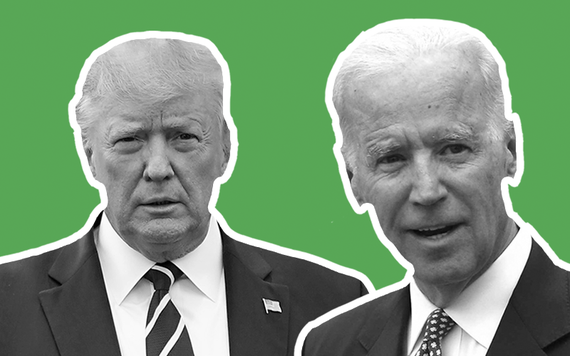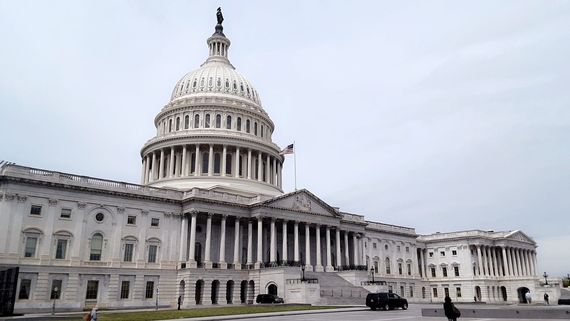We Irish like to think we are known for certain values that endure no matter where in the world we go: fair play, good humor, informality, honest dealing
They all seem like part of our national DNA, because history has taught us to be wary of their opposites.
But last month, a woman with a conspicuously Irish name threw herself and her beliefs into the gears of history. Her name was Emily Murphy, 47, and for sixteen long days, she decided to subvert democracy in America.
I haven't been able to stop thinking about what she did because it literally personifies the growing weaknesses in our entire political system. Murphy remorselessly put her job and her politics before the nations, whilst loudly asserting that this was all for the greater good.

Nominated by President Trump to lead the U.S. General Services Administration (GSA) as Trump tried to reverse the November election result with multiple legal challenges and bogus fraud charges, Murphy began to unwittingly embody the partisan divisions tearing at the country's politics.
It's not a small thing to throw yourself in front of several hundred years of political precedence, disrupting the peaceful handover of power, but Murphy knew she would immediately face Trump's wrath for doing her job. She knew that she and her top aides could be quickly fired by him if she moved ahead with the transition.
The GOP leadership were no help, privately conceding that Trump had lost as they remained publicly silent, fearing his wrath too. Murphy felt personally exposed by their cowardice, because they were leaving departments like hers completely undefended and caught in a terrible bind.

Home of U.S. Congress
Meanwhile, out in the wider nation, impatience understandably grew with all her hand wringing, but it quickly reached a regrettable level. Soon the GSA had to provide her with a security detail.
Ultimately it would take until Michigan certified its votes after Trump's legal defeat in Pennsylvania before she finally called it and began the transition process. Then at that point, she sat down to write an unusually personal and self-justifying letter explaining her actions to the President-elect Joe Biden.
In the letter, which was notably full of self-pity and windy justifications for her recent actions, the tell was in her discourteous refusal to address Biden as President-elect.
She complained at length that people had been mean and threatening toward her, but she wouldn't give Biden the basic courtesy of calling him President-elect. Critics asked, had she put American democracy on hold until people started being nicer to her?

You don't have to write a self-defending letter that long if you have actually been doing your job. Insisting for two paragraphs that she felt no pressure from the president is a sure way of conceding she actually did.
Finally, after starting the transition process and conceding the resources, she still refused to admit that Biden had won. In effect, her letter insisted that all the drama was really about her and the ordeal she faced, the President-elect whom she disrespectfully addressed as Mr. Biden was just an afterthought.
To put this in greater context, President-elect Biden won with a historic 81 million votes, over 6 million more than Trump. But Murphy in her actions and her letter threw herself in front of the people's will because she feared Trump and feared for her own employment prospects.

As Trump's lawyers went on a state by state tour to attempt to nullify and throw out the legitimately registered votes of Black people citing “fraud” they could not prove, Murphy played rearguard as she simultaneously sent out discreet feelers in search of a new job since the Trump era was ending.
The most important thing to remember is that Murphy’s actions were completely unprecedented. The GSA administrators usually issue a letter of ascertainment within hours of the election being called so that the new administration can immediately get to work setting up a new government. Again it usually takes hours, but Murphy took over two weeks.
For those two weeks, she embodied what almost every Republican leader embodies now: fear of the retribution of man they work for, fear of the angry voter base who will hold them to account, fear for their own lousy employment prospects as the nation's business is held to ransom.
We Irish deservedly like to make much of our celebrated national characteristics, like our pluck and our fair play, but it seems they can vanish like spit on a griddle when they come within a hairsbreadth of political power.




Comments